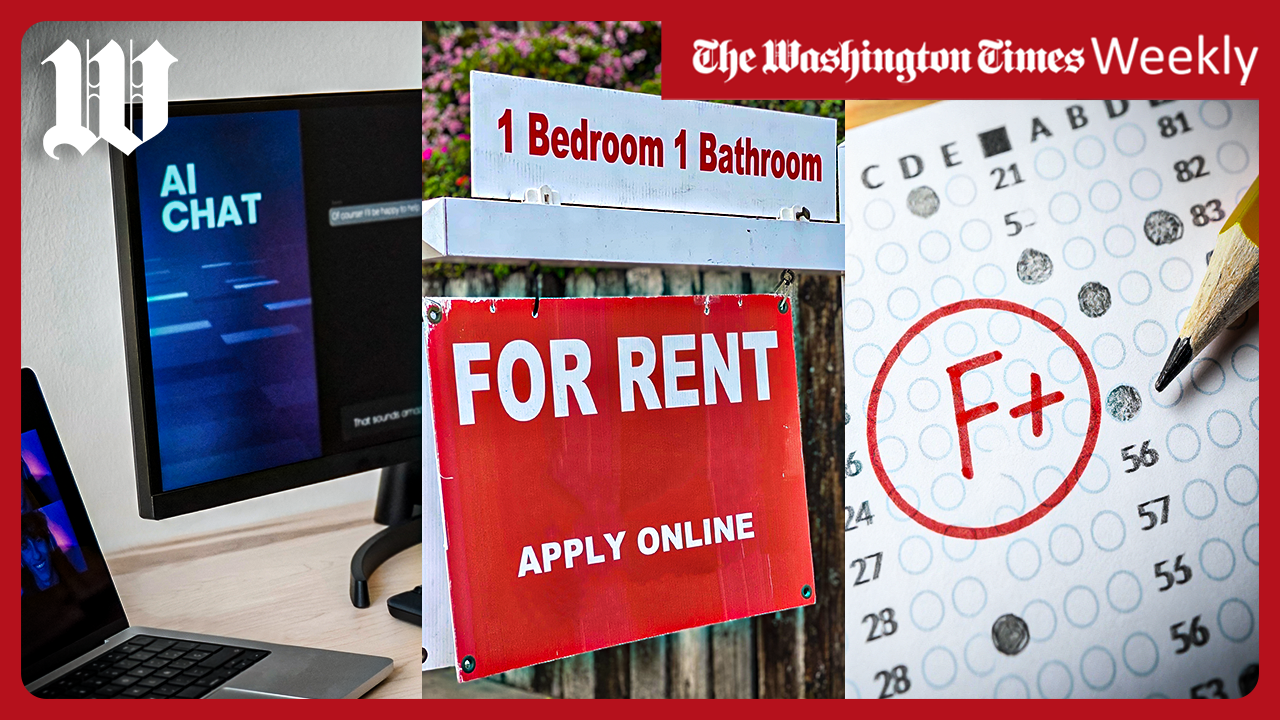
Hi, I’m George Gerbo, and welcome to Washington Times Weekly, where we get a chance to sit down with our reporters and talk about their coverage of the latest news and events.
And joining me once again is Washington Times’ cultural reporter, Sean Salai.
[GERBO] Let’s start with the D.C. Council, which has just repealed an ordinance and some of their rules recently that have restricted what landlords have been able to collect from renters. The council has had policies in place since the pandemic that protected renters. But as you’ve written about, landlords have said they’ve lost nearly a billion dollars in rent and other violations that have been accumulating in the course of the time that these restrictions have been in place. And now it appears the D.C. Council has finally relaxed some of these restrictions that were meant to give renters some grace during the pandemic. Now, four plus years on, it’s come time for those to be relaxed.
[SALAI] Over a billion dollars, actually. The advocacy group representing multi-family housing units in D.C. reported this week that they estimate over a billion dollars in losses since September 2021. And in September 2021, a federal moratorium on evictions during the pandemic was lifted. But what happened after that is the D.C. Council chose to leave in place these emergency eviction policies. The time it takes to evict a tenant who’s delinquent or a deadbeat tenant, so to speak, who isn’t paying his or her rent, has now lengthened to 18 months to two years to remove that person from a housing unit.
D.C. Council Chairman Phil Mendelson has estimated that one in five housing units that are rental units in the District of Columbia are economically vacant, which means that either nobody’s living there or the person who’s living there isn’t paying rent. In February, Mayor Muriel Bowser introduced a measure in the D.C. Council to speed up the process of evicting deadbeat tenants to what it used to be before the pandemic. And just recently we had the D.C. council vote 10 to three to lift some of the restrictions.
What they ended up settling on was a compromise. So now local judges will be empowered to collect back rent from tenants after they receive a complaint from landlords that they’re not paying. And the local judges can also set the amount of the rent or adjust it in order to get the tenants paying their rent. The problem is that there’s no enforcement mechanism in place here. Some of the landlord advocates wanted the DC council to include a deadline of 60 days that when you get a complaint from a landlord filed in court, you have within 60 days to appear in court to challenge that. And that would begin the process of repayment. The D.C. Council said they can’t do that, even though they set similar deadlines in cases involving spousal abuse and mental health complaints and other issues in the city.
So at the moment, it’s a wait-and-see. By this time in June, we could have a situation where evictions have increased substantially, or we could have basically the status quo. And the D.C. landlords are now calling on the council to introduce a separate bill setting timelines. It’s not clear yet whether local judges in the D.C. Superior Court will have the ability to enforce deadlines. But at the moment, it’s taking months to get these delinquent tenants into court. And so that’s the struggle that’s in place right now.
Watch the video to see the full conversation, including cracking down on artificial intelligence for children, satisfaction with the education system and superintendent turnover in schools.





![Gavin Newsom Threatens to 'Punch These Sons of B*thces in the Mouth' [WATCH]](https://www.right2024.com/wp-content/uploads/2025/08/Gavin-Newsom-Threatens-to-Punch-These-Sons-of-Bthces-in-350x250.jpg)
![ICE Arrests Illegal Alien Influencer During Her Livestream in Los Angeles: ‘You Bet We Did’ [WATCH]](https://www.right2024.com/wp-content/uploads/2025/08/ICE-Arrests-Illegal-Alien-Influencer-During-Her-Livestream-in-Los-350x250.jpg)








